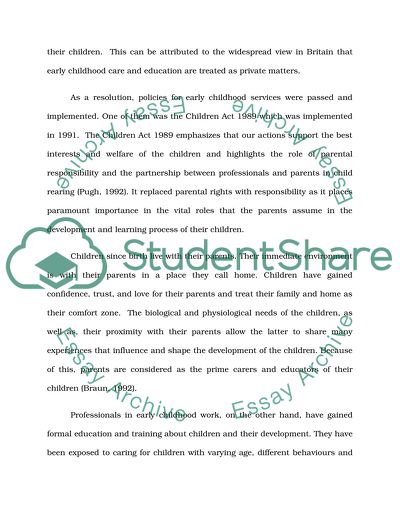Early Childhood Learning and Development Essay Example | Topics and Well Written Essays - 2000 words. Retrieved from https://studentshare.org/people/1517373-early-childhood-learning-and-development
Early Childhood Learning and Development Essay Example | Topics and Well Written Essays - 2000 Words. https://studentshare.org/people/1517373-early-childhood-learning-and-development.


